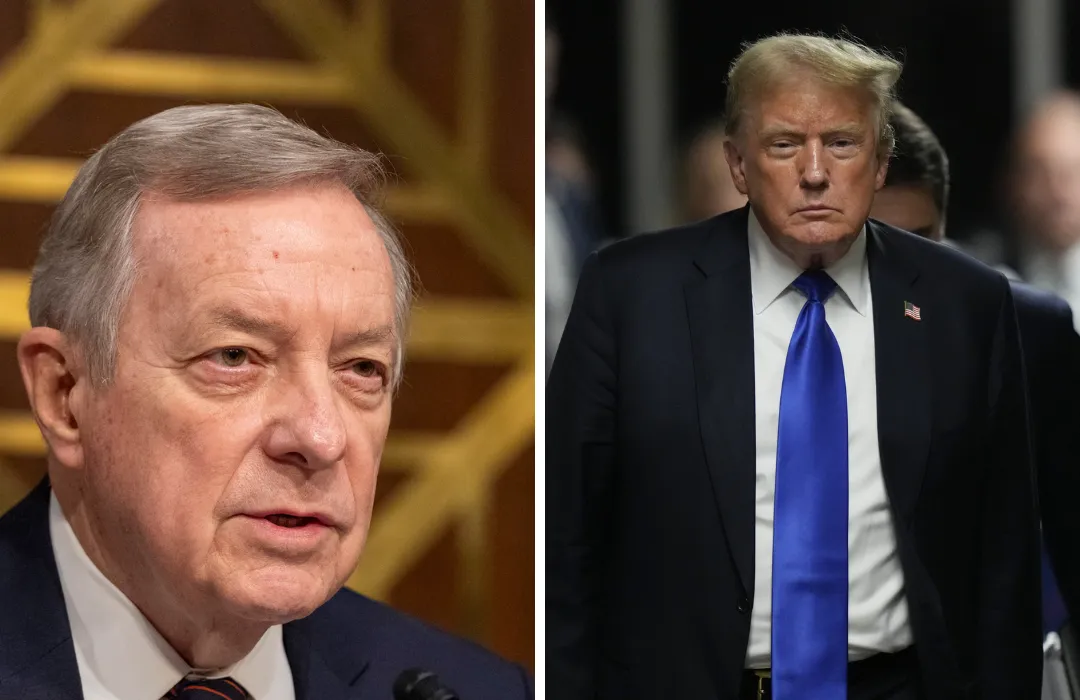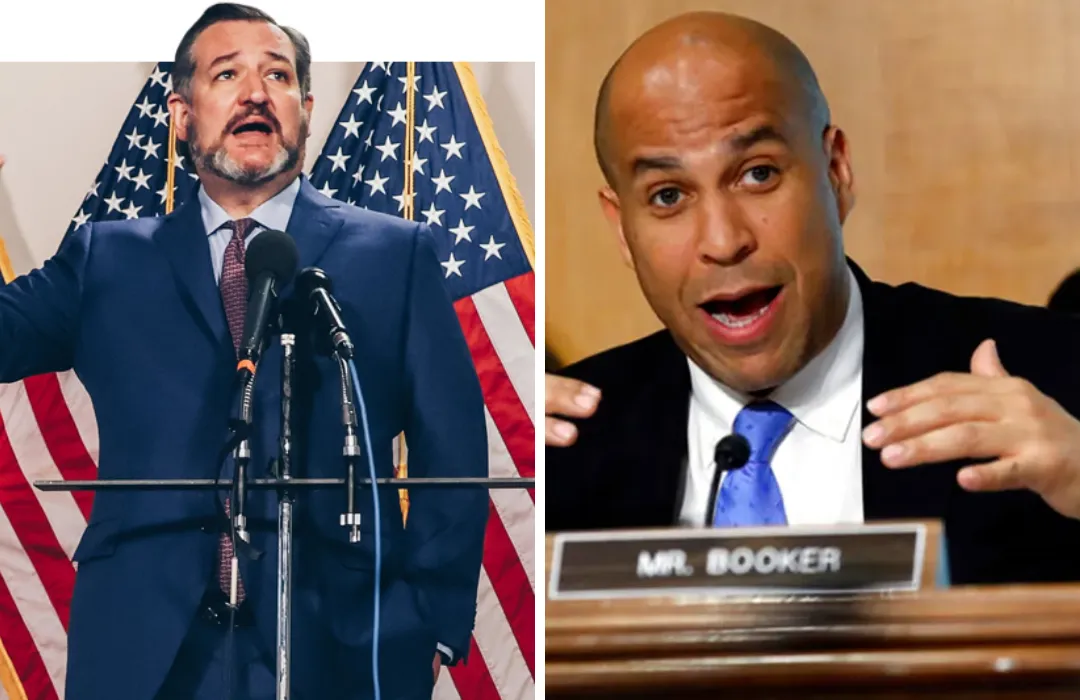Elon Musk’s Department of Government Efficiency (DOGE) made headlines this week after forcibly taking control of the U.S. Institute of Peace (USIP) on Monday, using both law enforcement and private security forces to seize the independent nonprofit organization.
This move marks a dramatic escalation in the Trump administration’s ongoing efforts to reform or dismantle institutions that it perceives as not in alignment with its goals, including USIP, which was founded by Congress to focus on foreign diplomacy and conflict resolution.
The USIP is an independent nonprofit organization, not a federal agency, and is not housed in a federal building, meaning it traditionally operates outside the direct purview of the U.S. government. However, on Monday, DOGE employees, reportedly backed by police officers and private security, entered the building and began the takeover.
The incident marks a controversial and unprecedented action in the realm of U.S. government operations, as the agency’s leadership and operations were forcibly altered without the usual legal processes of congressional oversight.
The takeover followed the Trump administration’s decision last week to remove USIP’s president, Greg Moose, and its board members. The Institute, which has long been a key player in advancing U.S. diplomatic efforts and promoting conflict resolution overseas, had its leadership dismissed by officials loyal to the Trump administration.
The Associated Press reported that on Monday, DOGE staff, after being previously denied access to the USIP building, entered the premises with the help of law enforcement and private security.
“They’re inside the building—they brought the FBI and a bunch of D.C. police,” USIP lawyer Sophia Lin told The New York Times, explaining how she and other staff members were forcibly removed from the premises. Lin’s account further underscores the dramatic nature of the takeover, which involved both government agencies and private security forces.
“What has happened here today is an illegal takeover by elements of the executive branch of a private nonprofit,” said Moose, the now-former president of the USIP. His words echo a growing concern among critics of the Trump administration’s push to centralize power and control over independent agencies, undermining their ability to function without undue political interference.
Moose went on to explain the broader implications of the takeover, noting that USIP’s mission to engage in peacekeeping efforts and diplomacy aligned directly with the Trump administration's goals of avoiding foreign conflicts and resolving disputes before they escalate into wars. However, according to Moose, it was clear that the administration wanted to dismantle much of what USIP had built over the years.
From the perspective of the White House, the actions taken against USIP were justified by the need to enforce the president’s executive authority. According to White House spokesperson Anna Kelly, the noncompliance of USIP staff with Trump’s order to remove certain board members and leadership led to the government’s action. "11 board members were lawfully removed, and the remaining board members appointed Kenneth Jackson as acting president," Kelly explained. "Rogue bureaucrats will not be allowed to hold agencies hostage.
The Trump administration will enforce the president’s executive authority and ensure his agencies remain accountable to the American people."
This justification for taking control of the organization is part of a broader trend in which the Trump administration has sought to exert greater influence over independent entities. While USIP was created to promote U.S. interests abroad through diplomatic and peace-building efforts, it is clear that the administration views the institute’s mission and leadership as inconsistent with its priorities.
The White House’s actions reflect a growing desire to reshape institutions that the administration believes are out of step with its goals, which include reducing U.S. involvement in international conflicts and reasserting control over foreign policy. USIP, as a nonprofit that works on global peace initiatives and conflict resolution, stands in stark contrast to the Trump administration’s “America First” approach, which prioritizes domestic over international concerns.
Despite the tensions with the Trump administration, USIP’s role in U.S. diplomacy remains critical. The Institute’s mission involves providing non-partisan analysis, research, and programs aimed at preventing violent conflict and building peace worldwide.
Its work directly supports U.S. efforts to resolve disputes in places like the Middle East, Africa, and Southeast Asia, where American interests are often tied to regional stability.
Greg Moose, the former president, made a compelling case for the alignment of USIP’s mission with the goals that Trump has outlined—especially in regard to preventing military interventions and finding peaceful resolutions to global conflicts. He noted that USIP’s core principles have long been focused on conflict resolution before violence escalates into full-blown war.
In his statement, Moose argued, “I can’t imagine how our work could align more perfectly with the goals that he has outlined: keeping us out of foreign wars, resolving conflicts before they drag us into those kinds of conflicts.”
Despite this apparent alignment, Musk and DOGE’s actions suggest that they do not share the same view. Instead of continuing the work that USIP has been doing for decades, Musk’s group appears to be following a path that focuses more on the efficiency of governmental operations, pushing forward with more aggressive measures to centralize and control institutions like USIP.
DOGE, an organization closely associated with Elon Musk, has been at the center of various controversial efforts to reorganize government functions. Musk, best known for his leadership at Tesla and SpaceX, has been an advocate for a more efficient, streamlined government, free from what he perceives as bureaucratic obstacles.
The recent seizure of the USIP building is a stark example of how Musk’s vision for government efficiency clashes with traditional institutions that operate outside direct government control.
While Musk’s supporters argue that his efforts are aimed at creating a more efficient government, critics worry that his actions could lead to the erosion of democratic checks and balances. The forceful takeover of USIP has sparked concern about the broader implications for government accountability, especially when such actions are supported by law enforcement and private security forces.
The controversy surrounding the USIP takeover raises important questions about the independence of nonprofit organizations that work closely with the government. USIP’s role in maintaining peace and diplomacy on behalf of the U.S. has been a critical part of its mission, but the recent actions of DOGE and the Trump administration show a willingness to use governmental authority to undermine institutions that do not align with the current political agenda.
As the legal and political fallout from this incident continues to unfold, the broader implications for nonprofit governance and international diplomacy will become clearer. The USIP’s forced takeover by Musk and DOGE may set a troubling precedent for future efforts to influence or dismantle independent organizations that do not fit within the confines of a particular administration’s agenda.





-1747710323-q80.webp)

-1748056375-q80.webp)